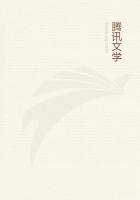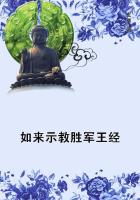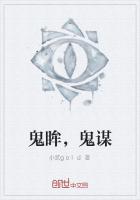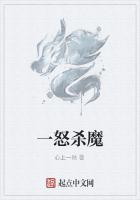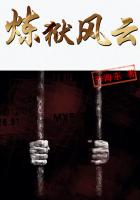Soc. And he who has the {episteme} of things rightful is more righteous than he who lacks the {episteme}? See Plat. "Hipp. min."; Arist. "Eth. Eud." VI. v. 7.
Euth. Yes.
Soc. And, on the other, he who has the knowledge of what is right is more righteous than he who lacks that knowledge?
Euth. I suppose it is, but for the life of me I cannot make head or tail of my own admission.
Lit. "Apparently; but I appear to myself to be saying this also, heaven knows how." See Jowett, "Plato," ii. p. 416 (ed. 2).
Soc. Well (look at it like this). Suppose a man to be anxious to speak the truth, but he is never able to hold the same language about a thing for two minutes together. First he says: "The road is towards the east," and then he says, "No, it's towards the west"; or, running up a column of figures, now he makes the product this, and again he makes it that, now more, now less--what do you think of such a man?
Euth. Heaven help us! clearly he does not know what he thought he knew.
Soc. And you know the appellation given to certain people-- "slavish," or, "little better than a slave?" {andropododeis}, which has the connotation of mental dulness, and a low order of intellect, cf. "boorish,' "rustic," "loutish," ("pariah," conceivably). "Slavish," "servile," with us connote moral rather than intellectual deficiency, I suppose. Hence it isimpossible to preserve the humour of the Socratic argument. See Newman, op. cit. i. 107.
Euth. I do.
Soc. Is it a term suggestive of the wisdom or the ignorance of those to whom it is applied?
Euth. Clearly of their ignorance.
Soc. Ignorance, for instance, of smithying? Euth. No, certainly not.
Soc. Then possibly ignorance of carpentering? Euth. No, nor yet ignorance of carpentering. Soc. Well, ignorance of shoe******?
Euth. No, nor ignorance of any of these: rather the reverse, for the majority of those who do know just these matters are "little better thanslaves."
Soc. You mean it is a title particularly to those who are ignorant of the beautiful, the good, the just?
Cf. Goethe's "Im Ganzen Guten Schonen resolut zu leben." It is, in my opinion (he replied).
Soc. Then we must in every way strain every nerve to avoid the imputation of being slaves?
Euth. Nay, Socrates, by all that is holy, I did flatter myself that at any rate I was a student of philosophy, and on the right road to be taught everything essential to one who would fain make beauty and goodness his pursuit. So that now you may well imagine my despair when, for all my pains expended, I cannot even answer the questions put to me about what most of all a man should know; and there is no path of progress open to me, no avenue of improvement left.
{tes kalokagathias}, the virtue of the {kalos te kagathos}-- nobility of soul. Cf. above, I. vi. 14.
Thereupon Socrates: Tell me, Euthydemus, have you ever been to Delphi?
Yes, certainly; twice (said he).
Soc. And did you notice an inscription somewhere on the temple:
{GNOMISEAUTON}--KNOW THYSELF?
Euth. I did.
Soc. Did you, possibly, pay no regard to the inscription? or did you give it heed and try to discover who and what you were?
I can safely say I did not (he answered). That much I made quite sure I knew, at any rate; since if I did not know even myself, what in the world did I know?
Soc. Can a man be said, do you think, to know himself who knows his own name and nothing more? or must he not rather set to work precisely like the would-be purchaser of a horse, who certainly does not think that he has got the knowledge he requires until he has discovered whether the beast is tractable or stubborn, strong or weak, quick or slow, and how it stands with the other points, serviceable or the reverse, in reference to theuse and purpose of a horse? So, I say, must a man in like manner interrogate his own nature in reference to a man's requirements, and learn to know his own capacities, must he not?
Euth. Yes, so it strikes me: he who knows not his own ability knows not himself.
Soc. And this too is plain, is it not: that through self-knowledge men meet with countless blessings, and through ignorance of themselves with many evils? Because, the man who knows himself knows what is advantageous to himself; he discerns the limits of his powers, and by doing what he knows, he provides himself with what he needs and so does well; or, conversely, by holding aloof from what he knows not, he avoids mistakes and thereby mishaps. And having now a test to gauge other human beings he uses their need as a stepping-stone to provide himself with good and to avoid evil. Whereas he who does not know himself, but is mistaken as to his own capacity, is in like predicament to the rest of mankind and all human matters else; he neither knows what he wants, nor what he is doing, nor the people whom he deals with; and being all abroad in these respects, he misses what is good and becomes involved in what is ill.
Again, he that knows what he is doing through the success of his performance attains to fame and honour; his peers and co-mates are glad to make use of him, whilst his less successful neighbours, failing in their affairs, are anxious to secure his advice, his guidance, his protection; they place their hopes of happiness in him, and for all these causes single him out as the chief object of their affection. He, on the contrary, who knows not what he does, who chooses amiss and fails in what he puts his hands to, not only incurs loss and suffers chastisement through his blunders, but step by step loses reputation and becomes a laughing-stock, and in the end is doomed to a life of dishonour and contempt.
Cf. Dante, "Tu duca, tu maestro, tu signore." Reading, {dia panta tauta}, or if {dia tauta}, translate "and therefore."What is true of individuals is true also of communities. That statewhich in ignorance of its power goes to war with a stronger than itself ends by being uprooted or else reduced to slavery.

